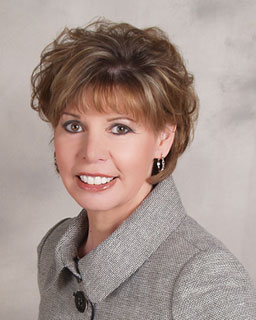Without question it has been a tough couple of years for the swine industry. As the industry begins to recover, Straight talk asked Julie Maschhoff, vice president of public relations for The Maschhoffs, for thoughts on a variety of topics.
The Maschhoffs, headquartered in Carlyle, Illinois, is one of the largest family-owned pork production networks in North America. The company, owned by fifth-generation family farmers Dave and Karen Maschhoff and Ken and Julie Maschhoff, partners with a network of 300 family farmers across the Midwest.
Q: What was your vision in the early years and what was the
driving force that took Maschhoff’s from a small
farrow-to-finish business to one of the top production companies in
the world?
A: Ken Maschhoff sensed early on that we could be more efficient than many of our competitors, and that gave us the confidence to leverage that advantage across as many farms as possible. We wanted to grow while we were still the most efficient operator. We were willing to take risks, but were also strong enough financially to handle those risks. We have never been comfortable standing still and are most comfortable in changing dynamics.
Q: What has been the best decision Maschhoff’s have made to survive this downturn in market?
A: From a health perspective, we’ve put a premium on preventing disease by keeping our sow herd predominantly PRRS-negative and continually evaluating the efficacy of our vaccination program. In the health world, an ounce of prevention is truly worth a pound of cure.
Q: What are the biggest threats to independent pork producers today?
A: The biggest threats are regulatory and legislative impacts which have unintended consequences on the cost of production, such as ethanol, antibiotic use, and climate-change policies. The entry of foreign animal diseases such as foot-and-mouth and the subsequent complete loss of export markets would be absolutely devastating to the industry.
Q: How can independent pork producers work better together to promote pork consumption worldwide?
A: Contact their legislators and encourage them to pass the pending free trade agreements!
Q: How did you develop the excellent relationship that you have with the local community?
A: First and foremost, we always believed in giving back to the communities where we all live, work, and go to school. In the beginning, we provided a lot of financial support to our local church and church school. As we added employees and began to operate in different regions, we wanted to continue to provide that same type of support to our co-workers. Thus we created the Community Partnership Program which allows any production partner or employee to request a matching fund donation to support the causes in which they are actively involved.
But good community relationships are also strengthened by open communications. We open our office for meeting space to nonprofit groups. We provide tours and overviews of our operations to a variety of groups, and we work through programs like the National Pork Board’s Operation Main Street (OMS) to inform consumers of how pigs are raised in humane and socially responsible conditions today. Two dozen of our employees have been trained through OMS.
Q: Describe the role that your veterinarian plays in the organization.
A: Our veterinarian is a key player in all aspects of the operation, from nutrition to genetics to herd health.
Q: Has that role changed over the years?
A: We have moved away from a strictly prescriptive approach, where our veterinarians in the past prescribed a treatment for a specific disease, to an interactive team approach, where our veterinarians today are engaged in everything from designing animal-welfare programs to herd-health strategies that focus on disease prevention to understanding the practices that impact food-safety issues. Our veterinarians participate in PQA Plus® site assessments and biosecurity audits.
Q: What drives your swine health and production decisions?
A: We make decisions that are science based and research driven. We rely on evidence-based medicine to objectively evaluate critical diseases that may be present.
Q: How can pork producers better use the skills of their veterinarian?
A: As the industry continues to evolve, I see veterinarians playing a bigger role in advocacy. Through AASV and AVMA, veterinarians have a united voice which can serve to protect antibiotic use in food animals, as well as promote welfare and food safety.
Q: How about the reverse: what can veterinarians do to better serve the pork industry?
A: Veterinarians must do a better job of learning the key economic drivers of their clients’ business. Identical biological impacts in two different systems can have markedly different economic impacts, and as the industry enters an era of lower margins, veterinarians must stay aligned with their clients to ensure they are both focused on each client’s key biological drivers.
Q: What advice would you give to swine veterinarians to better help them serve their producer clients in tough times?
A: Any veterinarian has to understand the system he or she is working in and understand how each decision will impact that particular system from an economic standpoint.
Q: What are Maschhoff’s doing to promote pig welfare internally and to the general public?
A: The Maschhoff’s are developing a world-class animal-care team which will ensure that protocols are written and executed to promote animal well-being. The animal-care team has expertise in animal handling, environment, and health, and provides solutions to the field staff, which promote these key elements of animal well-being. An animal-welfare hotline has been established internally that allows employees, production partners, and on-farm personnel to confidentially report any animal well-being concerns.
Q: What keeps you awake at night?
A: The fear that time is running out on our window of opportunity to educate consumers!
--Tracy Ann Raef

